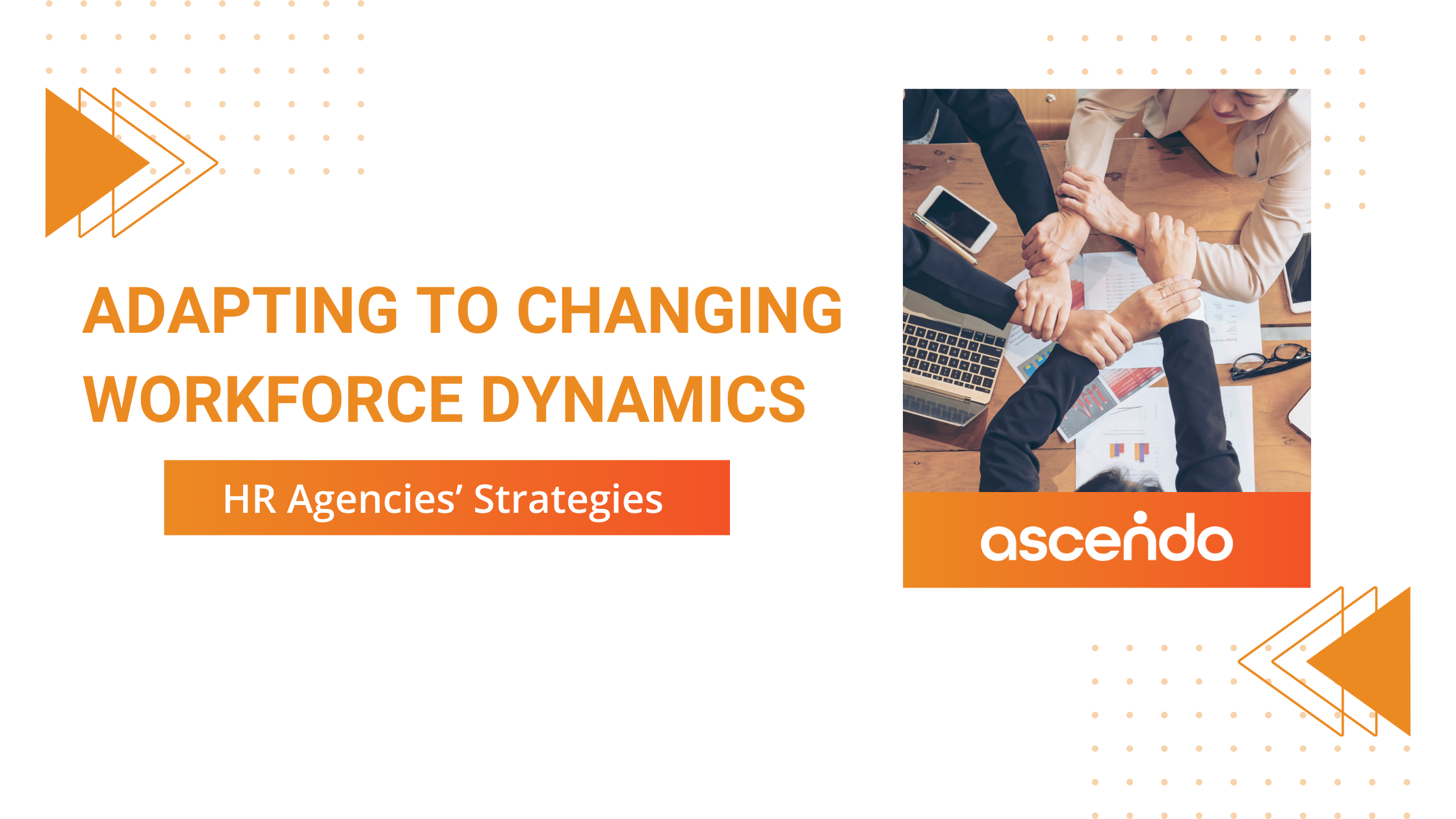Adapting to Changing Workforce Dynamics: HR Agencies' Strategies
In today's fast-paced and ever-evolving business landscape, workforce dynamics are undergoing significant changes. The emergence of the gig economy, shifting employee expectations, and evolving skill requirements have made it crucial for HR agencies to stay at the forefront of these changes. This blog will delve into how HR agencies are adapting to these shifts and helping their clients navigate the transforming world of work.
The Gig Economy Revolution
The gig economy, characterized by temporary and flexible work arrangements, has seen explosive growth in recent years. Agencies are leveraging technology to identify and recruit gig workers with specialized skills, creating a win-win situation for both clients and candidates.
Compliance Expertise: The gig economy comes with its own set of legal and compliance challenges. HR agencies stay updated with labor laws and regulations to ensure that both clients and gig workers are protected. They provide guidance on contracts, tax obligations, and benefits to ensure a smooth working relationship.
Skill Assessment: HR agencies have developed robust skill assessment methods to evaluate gig workers' capabilities. They use online tests, portfolio reviews, and interviews to gauge candidates' expertise and suitability for specific projects.
Changing Employee Expectations
Employees today have higher expectations when it comes to job satisfaction, work-life balance, and career development. HR agencies play a pivotal role in helping clients meet these expectations.
Employee Engagement: HR agencies assist clients in creating a positive work environment that fosters employee engagement. They conduct surveys, gather feedback, and implement initiatives to improve workplace culture and boost morale.
Flexible Work Arrangements: Recognizing the importance of work-life balance, HR agencies help clients implement flexible work arrangements, such as remote work, compressed workweeks, or job sharing. They also advise on the use of technology to facilitate remote collaboration.
Evolving Skill Requirements
As technology advances and industries transform, the skills needed for various jobs are constantly changing. HR agencies understand the importance of staying current with these shifts.
Upskilling and Reskilling: To bridge skill gaps, HR agencies offer upskilling and reskilling programs for employees. These programs may include online courses, workshops, and certifications to ensure that employees remain relevant in their roles.
Strategic Workforce Planning: HR agencies work closely with clients to develop long-term workforce strategies. They help organizations anticipate skill requirements and plan for future talent needs, ensuring that clients have the right people in place to achieve their goals.
Adapting to changing workforce dynamics is essential for HR agencies to remain relevant and effective in today's business environment. By embracing the gig economy, catering to evolving employee expectations, and staying current with skill requirements, these agencies are not only helping their clients navigate change but also contributing to a more agile and resilient workforce. As workforce dynamics continue to evolve, HR agencies will play a pivotal role in shaping the future of work.

